On Thursday 24th September, UNGEI and ActionAid hosted an Advocacy Writeshop for young activists. Building on the momentum of the In Solidarity With Girls policy brief launch, this writeshop aimed to support young activists to build the skills they need to disseminate the brief and promote its key recommendations.
As a young, motivated activist always looking to learn new things and broaden my capabilities, this writeshop really helped me understand the unwritten phenomenon of advocacy. The Writeshop was aimed at providing activists with tools that will help them mobilize resources and expertise within their activism field; furthermore, to create an advocacy letter that activists can send to relevant stakeholders and decision-makers. This writeshop had four sessions:
First, we rewind back to the key learnings from the intergenerational dialogue series hosted by UNGEI and partners, which led to the creation of the In Solidarity With Girls policy brief. (Read more about this awesome, youth-powered brief here).
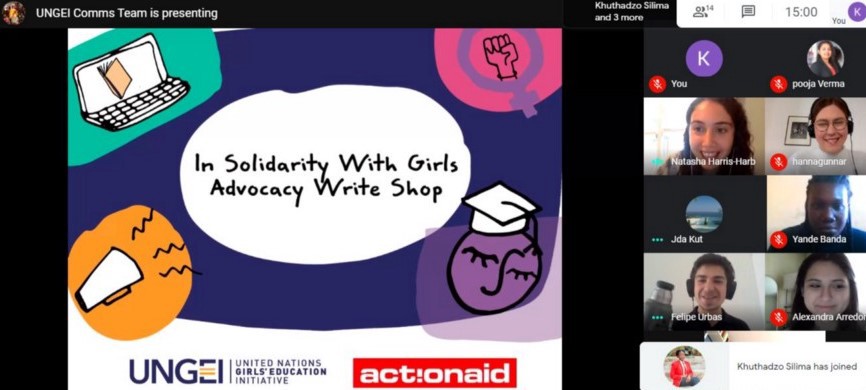
Next, Hanna Gunnarsson from Women Engage for a Common Future (WECF) facilitated a session on What is advocacy? Hanna highlighted this global advocacy toolkit for youth activists which includes practical tips to effectively advocate for our causes. I loved the HERstory of world conferences, movements and protests. Hanna talked about how they were organized, their challenges, consequences and outcomes. I also appreciated how our advocacy was mapped around our new normal (the COVID-19 pandemic) and free resources like Google Meet were suggested for meetings.
In feminist spaces you always speak with a collective voice. The power of collective voice is that there’s never just one issue raised because we’re all so diverse.
The second session focused on power and stakeholder mapping . Joyce Brummelman from Plan International facilitated the session with an engaging activity that saw us using a simple mapping tool to identify stakeholders we found easy to influence and other stakeholders who are not so easy to influence when it comes to taking action. This session really resonated with me as I know that people in higher positions and other decision-makers are often quite hard to influence. The key takeaway was that individual activists may have less power, but when we come together as a network or a movement, we are a force to be reckoned with!
Reach out to people who are easy to influence and don’t have a lot of influencing power because you can build a movement together. When you reach out to each other, support each other, come up with ideas with each other and inspire each other, you will all become influential with each other.
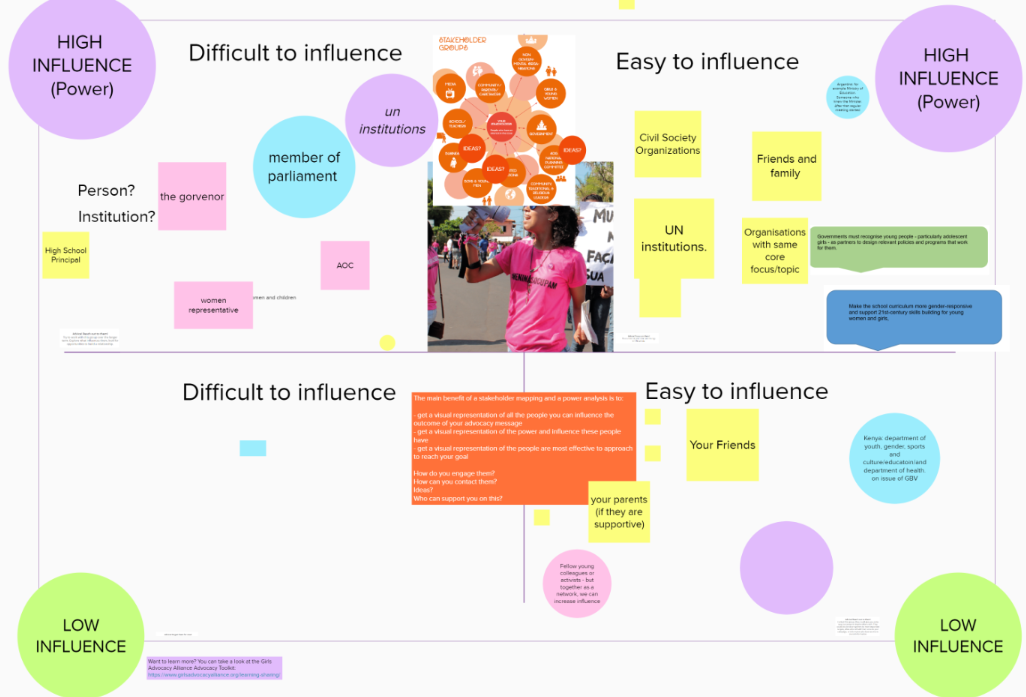
In the context of these two sessions, we started to lay the groundwork for the drafting of our advocacy letter . This session was facilitated by Katherine Robinson from ActionAid, and built on a letter template that we can use in our future advocacy work. One thing I learned is to use relevant upcoming local/national/international moments to strengthen the letter’s impact. This is also a great way to show recipients of the letter how the movement has a broader goal and maximum outreach in mind.
Make sure our ministers and duty bearers are aware of who this letter is coming from and why they need to listen up. We are all rights holders and we are defending the rights of girls.
Last, but certainly not least, SELF CARE . Self care is pretty important in the advocacy work we do and I find that it’s often neglected. I facilitated this mini meditation session for my fellow young activists. A healthy and strong mind is capable of moving mountains, right? So, taking time out of the day to relax, meditate, read a book or participate in a social media timeout is very important.
The global pandemic has changed the way the world does things and activist organizations are no exception to this new reality. The writeshop was inspiring and further fueled my desire to take action using the methods advised. I learned so many best practices that I can apply to my advocacy work. For example, I plan on sharing the power mapping tool as widely as possible with young individuals like myself, looking to focus their advocacy while ensuring their target stakeholders are reached and positively impacted.
Pauline is a co-creator of the policy brief and attended the Advocacy Writeshop.
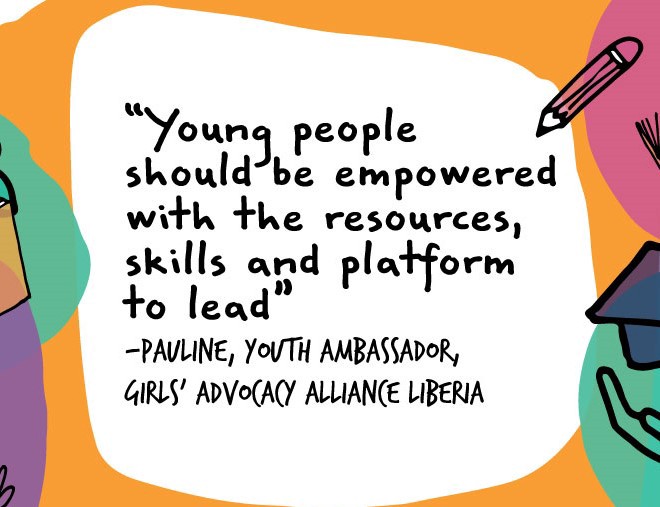
This year’s intergenerational dialogue series was a powerful way of facilitating the meaningful inclusion of youth voices in the global policy dialogue and response to COVID-19 with regards to girls’ education. The policy brief series which followed demonstrates just how much young women can take the lead against COVID-19 when we are empowered with the platform to do so.
This month, we are looking forward to taking part in a second writeshop to continue our letter drafting and skills building. I’m so excited to have another round of amazing discussions with youth activists from around the globe. Stay tuned for a report back on the Advocacy Writeshop: Part 2!
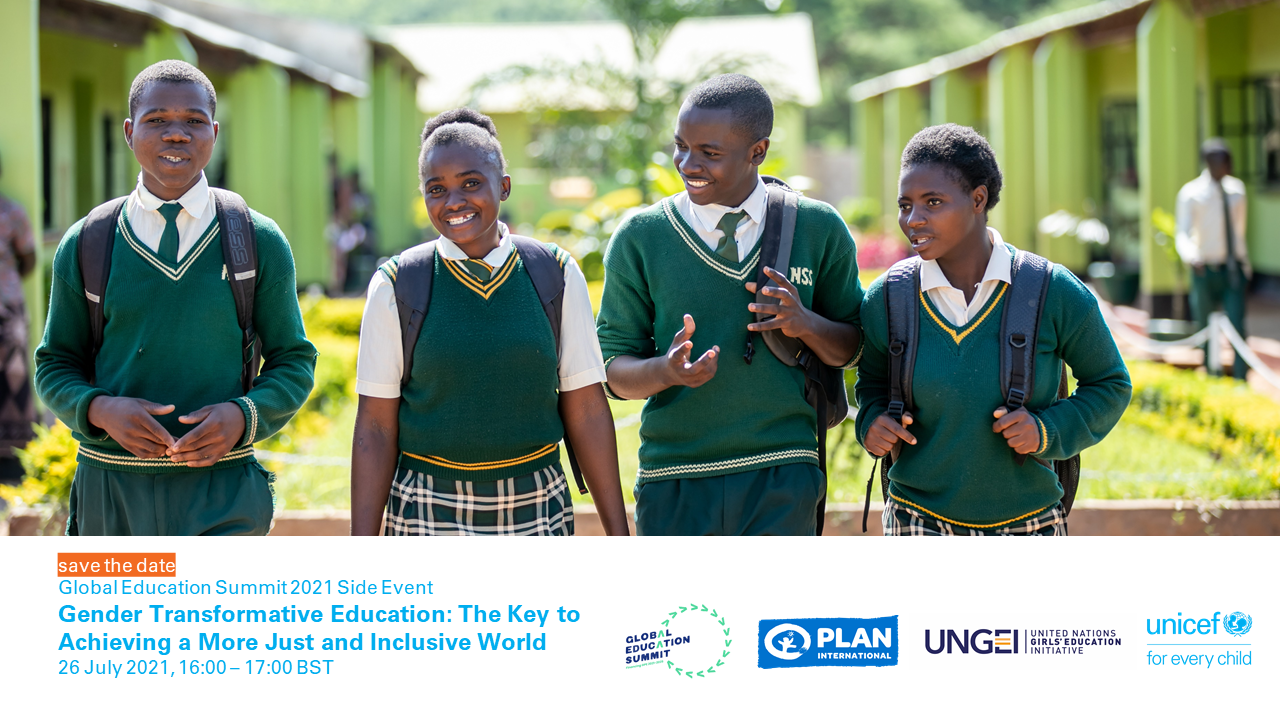
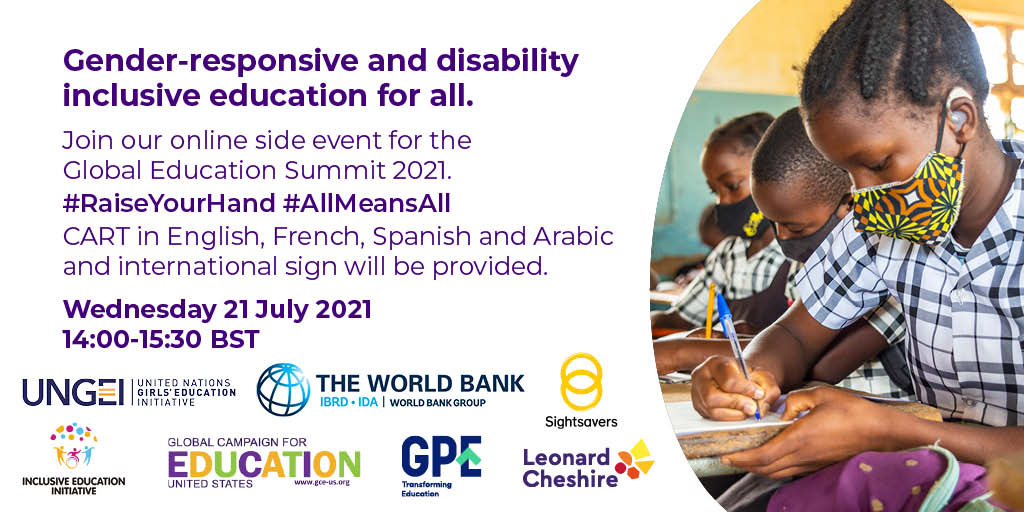
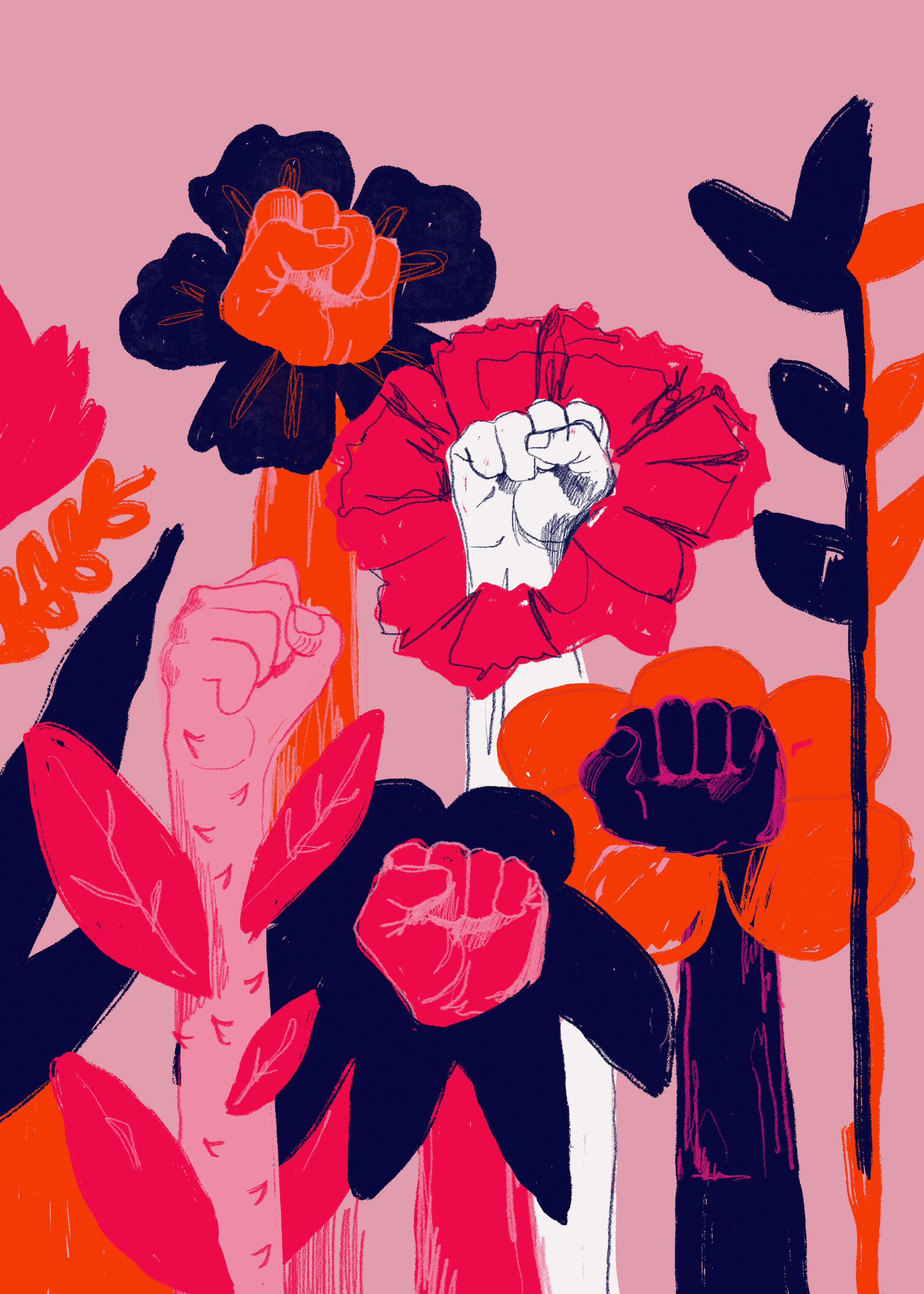
 English
English العربية
العربية Български
Български Hrvatski
Hrvatski Čeština
Čeština Dansk
Dansk Nederlands
Nederlands Suomi
Suomi Français
Français Deutsch
Deutsch Ελληνικά
Ελληνικά हिन्दी
हिन्दी Italiano
Italiano Română
Română Русский
Русский Español
Español Maltese
Maltese Zulu
Zulu አማርኛ
አማርኛ